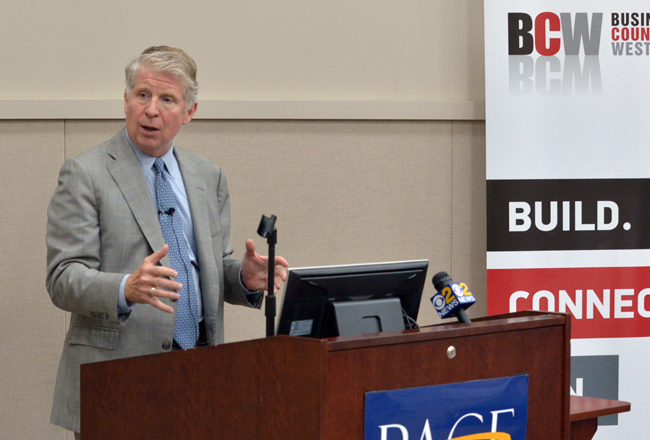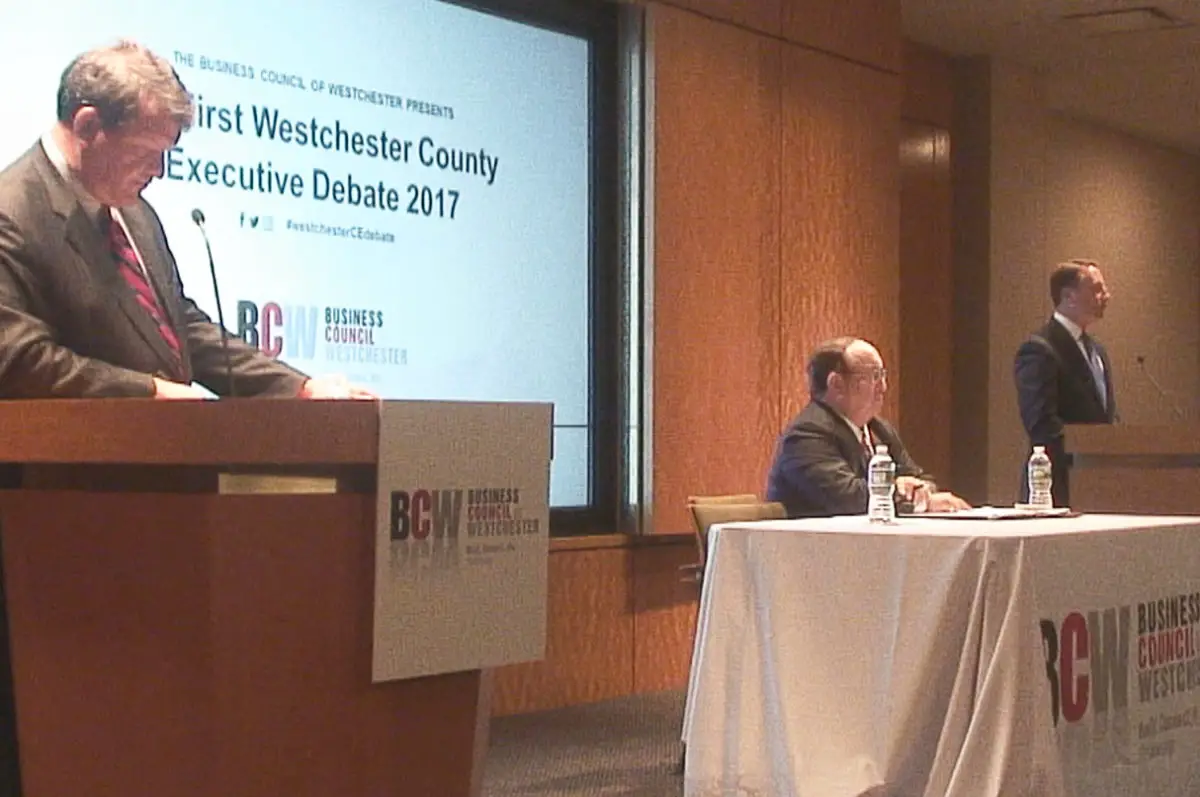Speaking at Pace University on Oct. 6, Manhattan District Attorney Cyrus Vance Jr. said that when he first arrived in the Manhattan office as an assistant DA in the 1980s, computer crime was as simple as “when someone went into an office building and took a computer.”

Vance was addressing a room full of students and business executives at Wilcox Hall on Pace”™s Pleasantville campus as the keynote speaker for “Cyberstorm: Cybersecurity in Business.”
As the title of the all-day conference suggests, computer and cybercrime has grown in both complexity and frequency well beyond Vance”™s initial understanding. He said cybercrime now represents about a third of the cases his office prosecutes.
To illustrate the issue, he listed a series of high-profile hacks and cybercrimes just in the last three years. The “staggeringly large crimes” included attacks on Target and Sony Pictures, both hacked in 2014, the U.S. Office of Personnel Management in 2015, the Democratic National Committee in 2016 and Equifax in 2017.
The hacks are evidence of a cyberthreat that Vance said represents a “clear and present danger.” He stressed the need for companies and agencies to work together to address cybersecurity issues.
“More than ever, cyber should bring us all together,” Vance said. “Because we are either going to get together and figure out how we share solutions on cyber, or, if we don’t, we are going to be picked off company by company, agency by agency.”
The all-day symposium on cybersecurity was part of a local effort to share possible solutions. The event was hosted by Pace”™s Seidenberg School of Computer Science and Information Systems and The Business Council of Westchester. The symposium featured a series of panels on cybersolutions and a breakfast keynote by Timothy T. Lunderman, senior cybersecurity administrator for World Wide Technology and former top tier administrator for the National Security Agency.
Jonathan Hill, dean of the Seidenberg School, said Pace plans to build the inaugural conference into a yearly event.
“Every individual has to be concerned about cybersecurity, but business owners do particularly,” Hill said. “Business owners are inevitably dealing with their customer”™s money and some level of their customer’s personal information. So, from a risk management and legal perspective, all business owners need to be aware and on top of this.”
That was a message echoed by Vance.
“To protect your brand,” Vance said, “you have to protect your customer’s brands and their data.”
Vance has been in the news recently because of questions raised about his handling of investigations into a Trump family real estate deal in 2012 and sexual assault allegations against Hollywood producer Harvey Weinstein in 2015.
Vance avoided alluding to the controversies during his speech, keeping his 30-minute keynote focused on cybersecurity. He promoted the Global Cyber Alliance, an initiative his office launched in 2015 with the city of London Police and the Center for Internet Security. The initiative has launched several tool-kits to help businesses avoid being victims of cyberattacks, including email authentication.
Crucial to “bending the curve” of an increasing cyberthreat, Vance said, is collaboration.
“Industries have to stop being scared of talking with each other about the threats they are receiving for fear that any information that is negative to your industry is somehow going to turn into a reduction in stock prices,” he said.
Vance said cyberthreats to business and organizations should be viewed with a neighborhood mentality.
“If I don’t protect my neighbor”™s house, then I made my house more vulnerable,” he said. “It’s really that simple.”



















